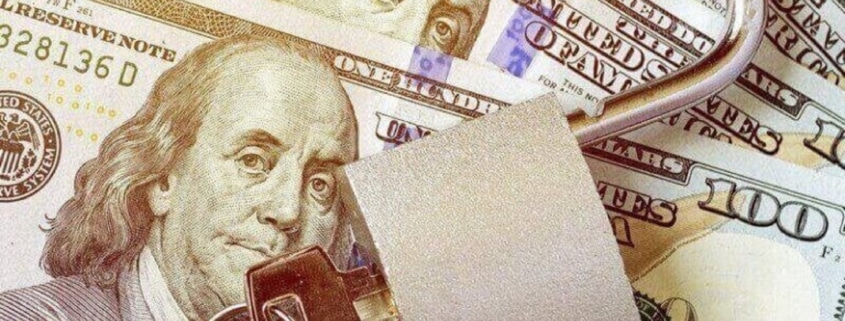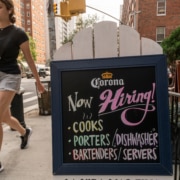Pros and Cons of a Secured Business Line of Credit
If your business needs to have fast access to cash, having a business line of credit (BLOC) in place can be invaluable. Before you apply for one, however, one of the first questions you need to ask is whether a secured or unsecured business line of credit is for you. Both options come with pros and cons, so it’s crucial that you carefully consider which is best for you.
What is a Line of Credit?
Secured and unsecured lines of credit are types of financing that give your business the flexibility to borrow funds at will with pre-agreed upon payback terms and credit limit. Whether you need cash to meet a business emergency or to meet payroll during the offseason, you can use the borrowed money to finance any aspect of your business that you see fit.
Secured and unsecured lines of credits, however, have different risk profiles for the borrower, so they usually come with different limits and interest rates.
What’s the Difference?
A secured BLOC is a form of financing that requires collateral to ensure that you pay back the borrowed amount, while an unsecured line of credit does not require collateral.
An unsecured line of credit typically requires a high FICO score, a certain number of years in business (usually at least two years) and a strong cash flow. This type of line of credit normally ranges between $10,000 and $100,000, depending on the needs of the borrower, and comes with a variable interest rate often pegged to the prime rate plus several percentage points.
A secured line of credit, while typically reserved for business owners with lower credit scores, requires borrowers to put up valuable assets as collateral. That collateral can include real estate, equipment, present and future invoices and inventory. If you operate a pass-through business, you may even have to put up personal assets such as your house or personal savings. That said, however, a secured line of credit does have distinct advantages:
#1 Secured Lines of Credit Usually Offer Lower Interest Rates
The Federal Reserve has hiked interest rates five times so far this year with more probably coming, so cost of capital is a major concern for borrowers. Since a secured line of credit is collateralized with tangible assets, the lender takes on much less risk when providing this type of loan, so therefore, depending on your FICO score and the amount of collateral you put up, there’s a good chance that the interest rate on a secured BLOC could be lower than an unsecured one.
#2 Your FICO Score can be Lower
Almost all lenders consider a high credit score to be one of the most important qualifications for financing, so if your FICO score is below 650, trying to secure a loan may be a frustrating experience. Since a secured BLOC is backed by assets, your chance of getting approved with a lower credit score is far higher than if you were applying for an unsecured line of credit.
#3 You Could Secure a Higher Line of Credit

A secured line of credit could come with a higher limit than an unsecured one.
While not in all cases, an unsecured BLOC usually tops out at $100,000 to limit the risk of the lender. Even for small business owners with great credit who are able to get approval for an unsecured BLOC, they often have to put up collateral if they want a limit exceeding $100,000. Depending on the value of the collateral being put up, a small business owner is more likely to obtain a higher limit with a secured BLOC than an unsecured one.
#4 Secured BLOCs May Have Longer Repayment Terms
Securing your line of credit brings a host of benefits, and one of them is that your repayment term will usually be longer than with an unsecured BLOC. Putting up real estate as collateral can be especially beneficial, as the lender may increase the repayment term and the limit since the value of real estate usually increases over time. In some cases, the repayment term on an unsecured BLOC can be up to 10 years, whereas with an unsecured BLOC, it is usually far less.
Cons of a Secured BLOC
While a secured BLOC does have its advantages, there are also potential drawbacks to consider before applying for one:
#1 You Risk Your Most Valuable Assets
To get approval for a secured BLOC, you need to put up valuable collateral. These can include your home or a highly valued piece of property. If your business relies on expensive pieces of equipment such as tractor-trailers or medical devices, or the future payment of invoices, those assets could be put up as collateral but would be at risk if you fail to pay off your debt. Therefore – just as you would with a personal loan – it is crucial that you make sure you can meet the repayment terms before you take out a secured BLOC.
#2 More Paperwork is Involved
You’ll probably need to consult with an attorney when applying for a

A secured line of credit will involve a lot of paperwork, as well as advice from a business attorney.
secured BLOC. That’s because you will need an expert to hash out the terms of repayment, especially if calamity hits and you are unable to pay back the amount you borrowed. An attorney can negotiate terms of what assets you will have to surrender in case you default on payments.
#3 Interest Rates Vary
While the interest rate on a secured BLOC is generally lower than an unsecured one, the rate will still be variable, meaning that it will fluctuate as interest rates fluctuate. This underscores the importance of making sure you understand the exact terms of the secured BLOC before you take one on.
A BLOC is not a Credit Card!
There is a common misconception that a line of credit is like a business credit card, but don’t be mistaken – the two are not the same. Yes, they both provide a line of credit and only charge interest on the amount you borrow. However, a line of credit ideally should be used for bigger, foreseeable expenses than a credit card since the interest rate is typically lower, and in some cases, you won’t get the cash from a line of credit for 24 hours. Plus, lines of credit have term limits and different repayment terms than a credit card.
A business line of credit is a great tool if you need to get new office furniture or appliances, if you need cash for a business emergency, or if there is unexpectedly high demand for one of your products and you suddenly need to purchase more inventory. On the other hand, a business credit card is handy for sudden cash needs, such as picking up the tab for a business meal, or if your flight gets canceled during a business trip and you suddenly need to pay for a hotel room. Business credit cards also offer perks such as travel miles, but generally charge a higher interest rate than a BLOC.
Carefully Weigh Your Options
A secured BLOC can give you great benefits if you need access to cash to grow your business or for an emergency. However, you need to carefully consider the terms of this type of financing, and like you would with your personal finances, you shouldn’t spend more than you need to.







